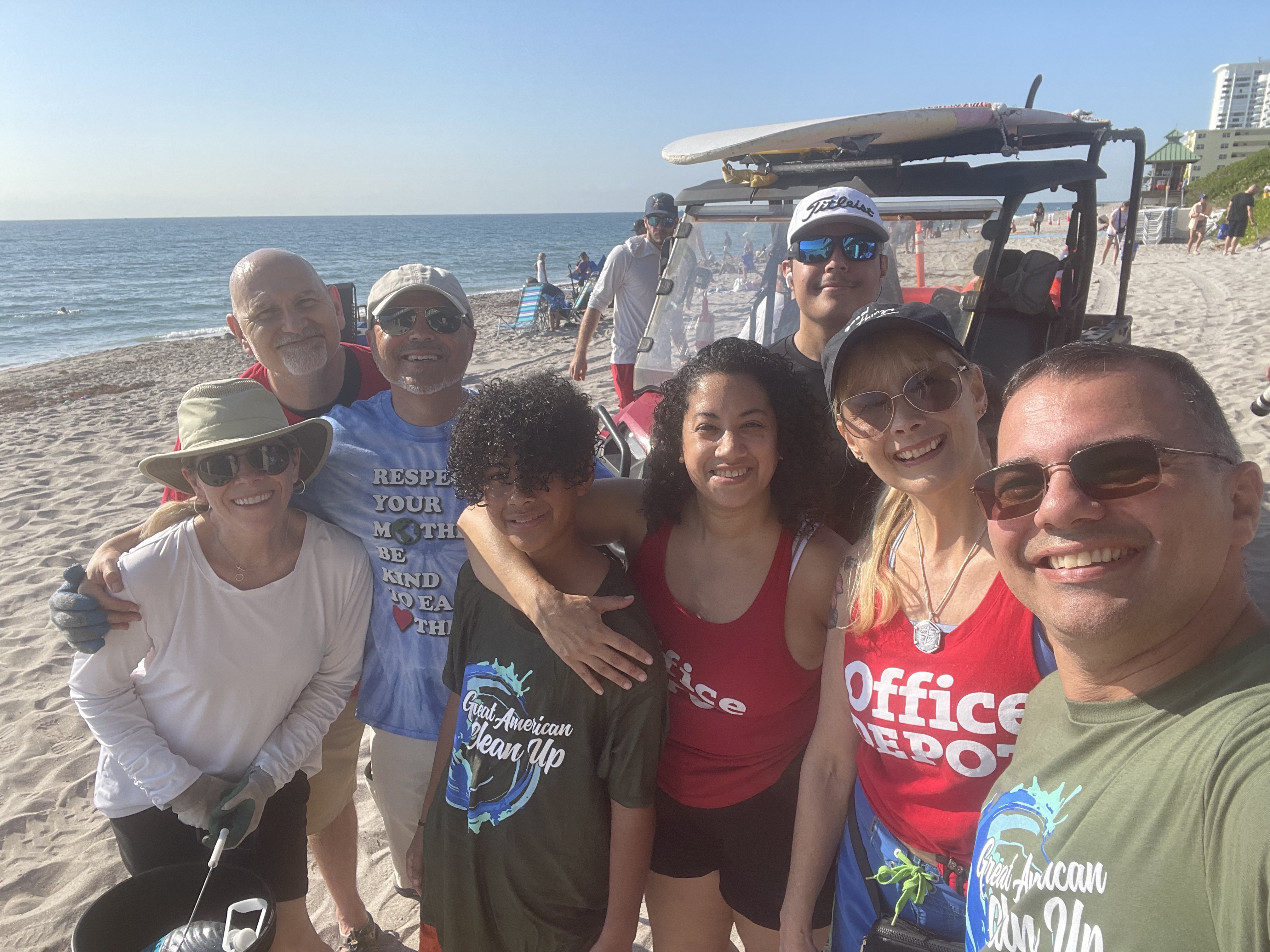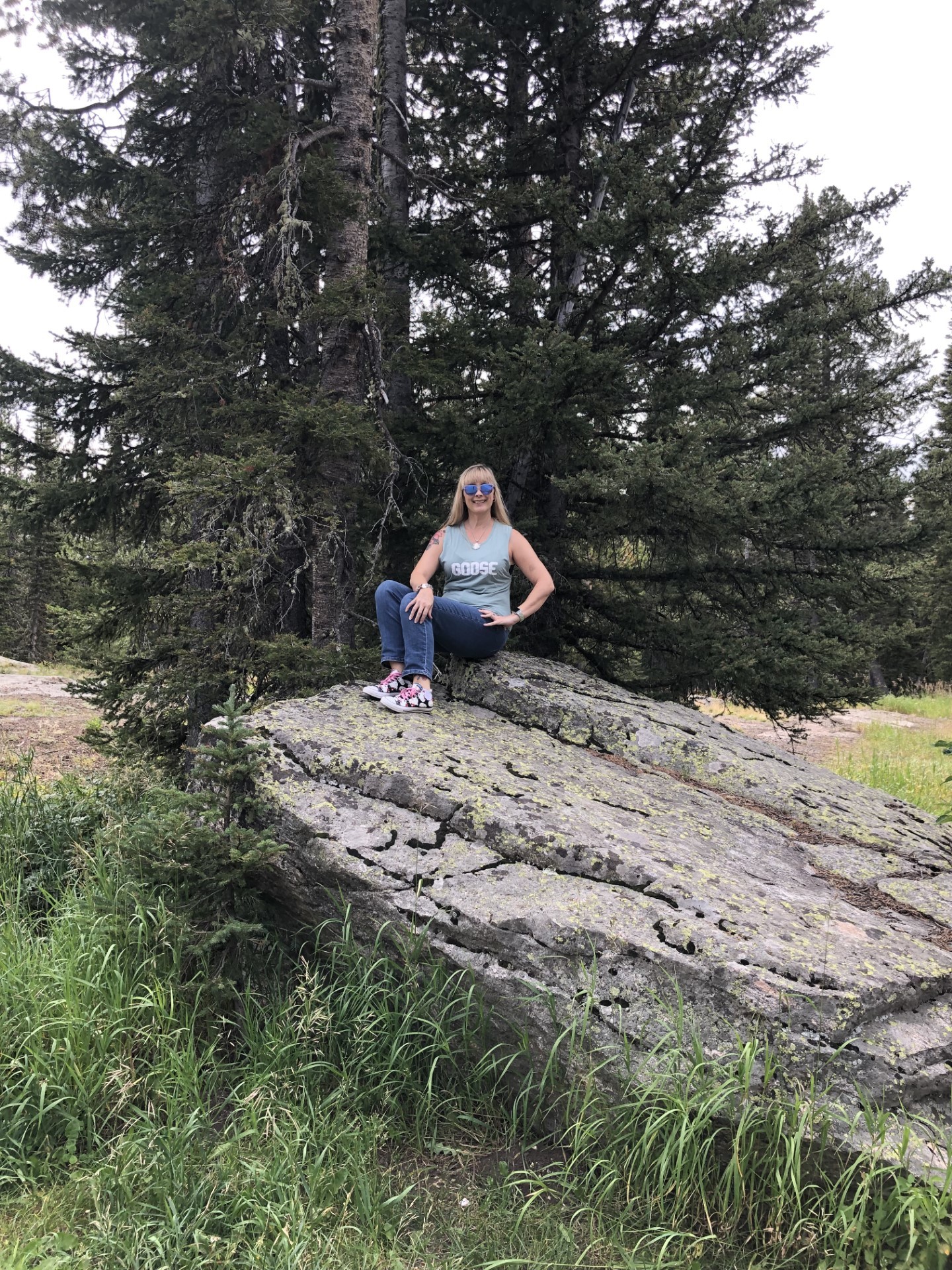-
 Mary Frigo 4/20/2024 2:00 PM
Mary Frigo 4/20/2024 2:00 PM
Elizabeth Malmstrom
"To further my knowledge and understanding of how our daily actions can make an impact on our planet, and how to become a better steward of the Earth for today and for future generations. "
POINTS TOTAL
- 0 TODAY
- 0 THIS WEEK
- 1,269 TOTAL
participant impact
-
UP TO2.0community eventshosted or attended
-
UP TO30advocacy actionscompleted
-
UP TO805minutesspent outdoors
-
UP TO995minutesspent learning
Elizabeth's actions
Freshwater + Oceans
Join a Cleanup Effort
I will organize or participate in a trash pickup at a local river, beach, or natural body of water.
Land + Forests
30 for 30 in Nature
Studies have shown that when we spend consistent time in nature, our health improves, our creativity increases, and our connection to the planet gets stronger. Each day of the Ecochallenge, I will spend 30 minutes outside (in a large or small patch of nature), then share my observations, reflections, and learnings on the feed.
Biodiversity + Wildlife
Biodiversity and Me
I will spend at least 20 minutes each day researching what biodiversity is, how biodiversity positively impacts our world, and how the loss of biodiversity harms it. I will share what I learn on the feed.
Climate + Air
Consume only Needs vs Wants
The more stuff we consume, the more greenhouse gasses we put into the atmosphere. I will adopt a "Needs Vs. Wants" approach this month and only buy things I need.
Freshwater + Oceans
Go Plastic-Free
Millions of tons of plastic is produced each year worldwide. Each day, I will conduct a plastics audit of what I buy and use throughout the challenge (kitchen, bathroom, personal care products, etc.), to see how single-use plastic shows up in my life. I will find plastic-free alternatives to these products and advocate for alternatives to single-use packaging at local grocery stores, product manufacturers, at work, or on campus.
Biodiversity + Wildlife
Save the Bees
Bees are vital to ecosystems. To help save the bees, I will learn which local flowers provide nectar and plant them in my backyard or in a pot on my balcony.
Climate + Air
Low Carbon Diet
Carbon is emitted into the atmosphere in a variety of ways, including through the foods we eat and food we waste. I will learn about low carbon foods and replace higher carbon foods with them in my diet.
Land + Forests
Choose Eco-Friendly Wood and Paper
Trees provide food and habitat for local wildlife species, shade our streets and homes, and help keep our air and water clean by capturing pollutants. Buying products that help protect forests makes a difference. I will only purchase wood, furniture, and paper products from ecologically certified sources such as Forest Stewardship Council.
Biodiversity + Wildlife
Beauty and Personal Products
Beauty and personal products can create a lot of waste. I will spend 15 minutes learning about the beauty and body products I use to see if they are refillable or recyclable. If not, I will reach out to the manufacturer to advocate for those options.
Action Track: Community
Sustainability Lunch and Learn
Learning in a social setting can inspire connection and change. I will work with a friend or colleague to plan and host a lunch and learn at work, school, in my neighborhood or other location to learn more about an environmental topic important to me. After the lunch and learn, I will share more about it on the feed.
Action Track: Community
Raise Awareness for the Conservation of Freshwater and Oceans
I will spend 15 minutes learning more about the importance of freshwater + ocean conservation, and how I can reduce my water use. I will share what I learn with people in person, on social media, and on the feed.
Land + Forests
Borrow Before I Buy
Why buy something I will only use once or a few times if someone nearby has it for me to borrow, and why not share something I have that someone may only need a few times a year? To reduce my consumption and waste, I will create or support the sharing economy with friends, family, colleagues or neighbors.
Biodiversity + Wildlife
Invest in Nature
A healthy world needs both our daily actions and support from larger systems. I will spend 15 minutes learning about how I can use my investments and savings to advance environmental sustainability.
Participant Feed
-
REFLECTION QUESTIONFreshwater + OceansHow does working with others to clean up your community make you feel? What results did you see? Please consider posting a photo of your cleanup!
-
 Elizabeth Malmstrom 4/19/2024 5:56 AMSo excited for our Beach Clean up tomorrow! ODP is teaming up with Bikini Block beach advocates and Gumbo Limbo Nature Center in Boca Raton, FL to take part in the Great American Clean up! GREAT AMERICAN CLEANUP® - Keep America Beautiful (kab.org) It's all over the country so find your location today and help keep our beaches and ecosystems sustainable and beautiful! Cya at the Beach!
Elizabeth Malmstrom 4/19/2024 5:56 AMSo excited for our Beach Clean up tomorrow! ODP is teaming up with Bikini Block beach advocates and Gumbo Limbo Nature Center in Boca Raton, FL to take part in the Great American Clean up! GREAT AMERICAN CLEANUP® - Keep America Beautiful (kab.org) It's all over the country so find your location today and help keep our beaches and ecosystems sustainable and beautiful! Cya at the Beach! -
REFLECTION QUESTIONLand + ForestsWhat have you noticed about how it feels to spend consistent time outside?
 Elizabeth Malmstrom 4/17/2024 5:00 AMI have always spent time outdoors, but with this challenge I consistently made sure I spent 30 minutes for 30 days! It's a great reminder.
Elizabeth Malmstrom 4/17/2024 5:00 AMI have always spent time outdoors, but with this challenge I consistently made sure I spent 30 minutes for 30 days! It's a great reminder. -
 Elizabeth Malmstrom 4/16/2024 3:56 AMLearned about the incredible amount of waste generated by the fashion industry! As a fashionista this makes me so sad and this year I have been reusing and thrifting more so as not to support the "fast fashion" part of the industry. This was a very well-done documentary! Plus, the psychological study of the industry and how it was used to help these owners make a profit. I have shopped here as their style is very bohemian sheik, but I had no idea. FYI-they still have stores today! Brandy Hellville & The Cult of Fast Fashion | Watch the Movie on HBO | HBO.com
Elizabeth Malmstrom 4/16/2024 3:56 AMLearned about the incredible amount of waste generated by the fashion industry! As a fashionista this makes me so sad and this year I have been reusing and thrifting more so as not to support the "fast fashion" part of the industry. This was a very well-done documentary! Plus, the psychological study of the industry and how it was used to help these owners make a profit. I have shopped here as their style is very bohemian sheik, but I had no idea. FYI-they still have stores today! Brandy Hellville & The Cult of Fast Fashion | Watch the Movie on HBO | HBO.com-
 Raissa Fermin 4/16/2024 4:01 AM
Raissa Fermin 4/16/2024 4:01 AM
-
-
 Elizabeth Malmstrom 4/13/2024 1:41 PM
Elizabeth Malmstrom 4/13/2024 1:41 PM -
 Elizabeth Malmstrom 4/08/2024 7:30 AM
Elizabeth Malmstrom 4/08/2024 7:30 AM -
 Elizabeth Malmstrom 4/07/2024 3:14 PMThroughout my whole weekend I have not used a plastic bag for any purchases and either carried my items out or remembered my reusable bag. I had one cashier actually thank me for doing this for the planet! We lead by example! So awesome. :)
Elizabeth Malmstrom 4/07/2024 3:14 PMThroughout my whole weekend I have not used a plastic bag for any purchases and either carried my items out or remembered my reusable bag. I had one cashier actually thank me for doing this for the planet! We lead by example! So awesome. :)-
 Kieran Wade 4/09/2024 5:43 AMI got some little reusable produce bags too -- my life hasn't been the same since! My weakness is remembering to bring them out of the car. I've been forcing myself to abandon cart and go back to fetch them when I forget, hahaha
Kieran Wade 4/09/2024 5:43 AMI got some little reusable produce bags too -- my life hasn't been the same since! My weakness is remembering to bring them out of the car. I've been forcing myself to abandon cart and go back to fetch them when I forget, hahaha
-
-
 Elizabeth Malmstrom 4/06/2024 10:21 AMI just learned about a Vendor Expo I may get to attend that is ZERO waste. I was so impressed to see they banned Styrofoam, plastic (one time use) water bottles, swag bags and looked at how things were made (items should be compostable). This is amazing! There is so much waste associated with conferences, events or vendor fairs and this is a notable change.
Elizabeth Malmstrom 4/06/2024 10:21 AMI just learned about a Vendor Expo I may get to attend that is ZERO waste. I was so impressed to see they banned Styrofoam, plastic (one time use) water bottles, swag bags and looked at how things were made (items should be compostable). This is amazing! There is so much waste associated with conferences, events or vendor fairs and this is a notable change.-
 Andrew Eddy 4/06/2024 2:14 PM
Andrew Eddy 4/06/2024 2:14 PM
-
-
REFLECTION QUESTIONBiodiversity + WildlifeWhat new insights did you gain about the skincare products you use? Did you reach out to advocate for refillable or recyclable packaging?
 Elizabeth Malmstrom 4/05/2024 5:57 AMI have made a change to use bar soap instead body wash as it does not come in plastic bottles. I truly never realized how much plastic is being used until I saw the decrease of body wash containers in my recycle bin. It was eye-opening. Sometimes it's something that is right in front of you that you can change and make a bigger impact then you realized!
Elizabeth Malmstrom 4/05/2024 5:57 AMI have made a change to use bar soap instead body wash as it does not come in plastic bottles. I truly never realized how much plastic is being used until I saw the decrease of body wash containers in my recycle bin. It was eye-opening. Sometimes it's something that is right in front of you that you can change and make a bigger impact then you realized! -
REFLECTION QUESTIONLand + ForestsBeyond carbon sequestration, what other benefits do forests offer you personally?



